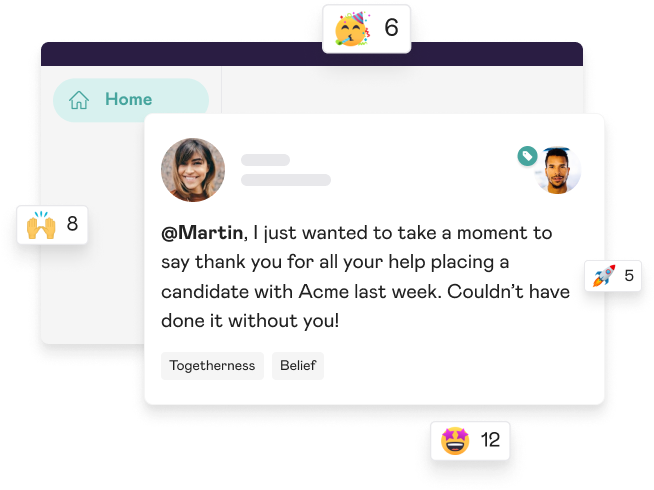You might sometimes see coaching vs mentoring used interchangeably, but they aren’t the same. While they’re both methods of helping individuals grow and reach their goals, each has a different approach and requires a different set of skills.
Get the lowdown on the similarities and differences between coaching and mentoring – which is most suitable for each member of your team – in our quickfire guide.
Coaching vs Mentoring
At Mo, we’re always thinking about ways to keep our teams and employees engaged. One of the most effective solutions is investing in sustained and thoughtful employee development, through coaching and mentoring. But what do each of these methods look like in practice?
What is Coaching?
Coaching is a method of upskilling individuals that takes a direct and thoughtful approach. Coaches are experienced in helping individuals improve their well-being and performance. They partner with individuals to guide them towards personal insight and understanding.
What is Mentoring?
Mentoring is a method of passing on skills, experience and insight from one person to another. It’s an interpersonal relationship perfect for the long-term development of an employee. Mentorship also offers the chance to build a lasting and powerful relationship between the mentor and the mentee. It establishes specific skills and boosts career development.
With Mo, you can meaningfully recognise, engage and connect with your team as they continue to develop and grow.
We provide weekly ideas to energize and bond with your employees. We also help teams incorporate recognition into their daily routines. Additionally, we go beyond basic rewards to inspire and motivate staff.
Transform your culture with Mo

- Improve employee engagement scores
- Reduce employee churn
- Build a collaborative culture
Coaching vs Mentoring: What’s the Difference?
While coaching and mentoring sound similar on the surface, there are a few key differences to bear in mind.
- Coaching tends to have a focus on helping people grow holistically, improving a wide range of skills. Mentoring is most often connected to a specific set of skills, industry or personal qualities.
- Typically, the relationship between a mentor and a mentee is longer than the one between a coach and the person being coached. However, there are always exceptions.
- Coaches and mentors can be from inside or outside. Mentors only need expertise in their field, while coaches need coaching skills as well.
For more insight into what coaching might look like for your workplace, check out our practical coaching examples.
How to Choose Between Coaching and Mentoring
Whether to embark on a coaching or mentoring relationship with your employee depends on your circumstances and the needs of the team member in question. Here are a few questions to ask yourself when making your decision:
1. Are You Seeking a Long-term Change or a Short-term Process?
A coaching relationship tends to be shorter, anywhere within the range of a few months to a year, while a mentorship may last many years. A mentor may help guide someone to manage their career effectively over the long term, while a coach can impart skills for short-term growth.
2. How Much Time Do You Have?
Generally, a coaching relationship demands more time in the short term. Since a mentorship may span several years, it is more likely that meetings will occur at intervals. Coaching works better with a shorter duration between meetings.
3. What Are You Hoping to Communicate?
If you’re hoping to give someone the tools, they need to investigate things for themselves, the coaching makes sense. If you’re passing on insider industry knowledge or learning, mentoring is the way.
4. What Does Your Employee Need?
If your employee needs knowledge about your industry or the specific connections and learnings you’ve made along the way, then mentoring is ideal. If they need to develop their self-awareness, the coaching is the way.
5. Where Are You in Your Career?
Typically, people take on mentorship roles when they are already in senior positions and have in-depth insights to share. Coaches may have less seniority but have separate caching qualifications or skills.
It’s also worth considering what the benefits will be to you. Maybe you want to continue to strengthen your coaching skills. Or perhaps you’d like to learn from your younger employees and enjoy the mutual benefits of reverse mentoring.
Coaching and Mentoring: the Long-term Benefits
Not only can mentoring and coaching cause a short-term uptick in employee satisfaction and performance, they can have some real long-term benefits.
Forbes reports that a staggering 75% of executives say that mentoring has been critical to their professional development. Here are just a few of the ways it can help.
- Higher levels of enthusiasm: Investing in employee development improves motivation and enthusiasm, helping employees feel more engaged.
- Better retention levels: Coaching opportunities and mentoring programmes can also help grow feelings of loyalty, resulting in lower churn.
- Stronger in-house talent: By upskilling your existing talent, you’re less likely to need to recruit new staff members to fill roles.
- Improved performance: The feedback and structure that come alongside a mentoring or coaching programme often result in a high-performing team.
- Increased accountability. The process of mentoring or coaching can strengthen the skills of an individual, improving accountability and improving their ability to manage and set their own goals and objectives.
On-going Support and Development
The best way to ensure that your employees are getting the most out of any mentoring or coaching opportunities is to offer ongoing support and personal development.
Career Check-ins
Regular career check-ins are a must. These can be every month, every quarter or even once a year, the important thing is ensuring consistency. If you’re keeping an eye on a coaching opportunity, it’s a great idea to have these more frequently so you can check that goals remain aligned.
Engagement and Reward Software
With Mo, it’s easy to help employees stay on track and keep engagement levels high. Not only do we make it easy for you to stay ahead of milestones and reward employees for achievements, but our platform helps managers encourage and recognise their employees.
Join companies like SHL, OVO Energy and William Hill in delivering meaningful improvement on engagement results with Mo.
Coaching Vs Mentoring: Key Takeaways
- Coaching and mentoring are distinct methods of helping individuals grow and reach their goals, each requiring different skills and approaches.
- Coaching involves a direct and thoughtful approach to guide individuals towards personal insight and understanding, focusing on holistic skill improvement.
- Mentoring entails passing on skills, experience, and insight from one person to another, often in a specific industry or skill set, establishing a long-term relationship for career development.




